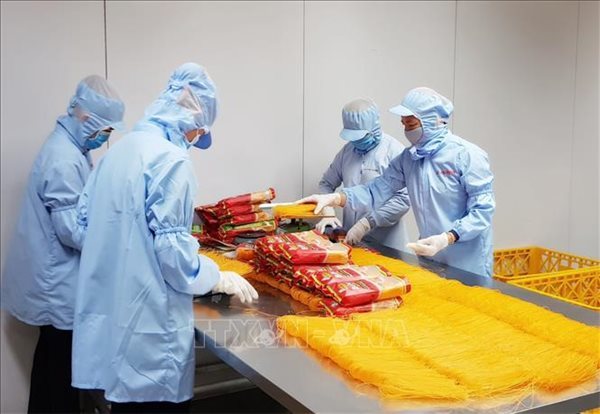Accounting for 90 percent of Vietnam’s total enterprises, SMEs are in an disadvantageous position to access preferential credit packages created during the COVID-19 crisis.

To borrow money from credit packages, SMEs have to prove their economic losses caused by Covid-19 and their debt payment capability. Meanwhile, commercial banks are still applying very stringent procedures for capital disbursement and are not flexible in the context of the epidemic.
In early March, a credit package worth VND250 trillion was committed to by some commercial banks which aims to help Covid-19-hit businesses overcome current difficulties. The value of the package later rose to VND300 trillion as more banks committed to provide loans.
As of mid-April, the size of the credit package had doubled, according to some unofficial sources, which targets SMEs, individual clients and large enterprises.
| To borrow money from credit packages, SMEs have to prove their economic losses caused by Covid-19 and their debt payment capability. Meanwhile, commercial banks are still applying very stringent procedures for capital disbursement and are not flexible in the context of the epidemic. |
Can Van Luc, chief economist of BIDV, pointed out four main characteristics of the credit package.
The loans aim to help businesses and business households suffering from Covid-19 improve liquidity and working capital.
The capital for the credit package is from people’s and businesses’ deposits, not from the state budget.
The disbursement procedures are nearly the same as procedures for normal loans.
The credit package focuses on priority business fields.
The loans to be disbursed under the preferential program will be taken into account when calculating the banks’ credit growth limits in 2020. The lower interest rates will cause banks’ profits to decrease.
Nguyen Van Phu from French National Center for Scientific Research (CNRS) commented that banks have taken prompt action by launching the VND300 trillion preferential credit package. However, they still are cautious when providing loans because of high risks.
He said only when the state acts as the last guarantor for these debts (potentially bad debts) will the credit support package be fully effective.
Meanwhile, Nguyen Tri Hieu, a respected economist, suggested that banks should provide loans via credit guarantee fund. The fund guarantees that enterprises can borrow money from banks. If enterprises cannot pay debts, the fund will have to pay the debts to banks.
With the credit guarantee fund, the government can use its prestige to guarantee the SMEs’ bank debts. If so, the government won’t have to spend money in the immediate time to assist enterprises and will only have to use the state’s budget when enterprises cannot pay debts.
Hieu thinks that, to save SMEs, the government should design a specific credit package worth 2 percent of GDP, or VND150 trillion.
Mai Chi

Vietnam businesses eyed by foreign investors
Instead of following procedures to become nvestors, foreign enterprises are preferring to ‘take a shortcut’ by taking over Vietnamese businesses, which allows them to penetrate the market more quickly.

VN businesses need capital immediately: economist
Businesses would rather borrow money at commercial interest rates and get loans immediately than wait for preferential loans, according to Vu Thanh Tu Anh, a respected economist.
 Some experts believe that the government needs to come forward and provide a guarantee for SMEs (small and medium enterprises) to access bank debts.
Some experts believe that the government needs to come forward and provide a guarantee for SMEs (small and medium enterprises) to access bank debts.